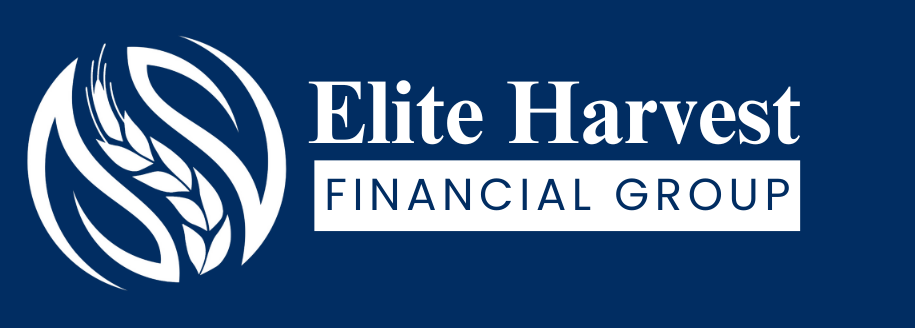Thinking about mortgage pre-approval in Whitby while still paying off student loans? You’re not alone. Many potential homebuyers believe student debt automatically disqualifies them from securing a mortgage—but that’s simply not true.
Despite what you might have heard, student loans don’t have to be a roadblock to homeownership. In fact, with the right preparation and knowledge, you can successfully navigate the pre-approval process even with existing education debt. The key lies in understanding how lenders view your student loans and taking strategic steps to strengthen your application.
Whether you’re a first-time homebuyer or looking to upgrade in the Whitby area, getting pre-approved is a crucial first step. Not only does it give you a clear picture of what you can afford, but it also positions you as a serious buyer when you find that perfect property.
In this guide, I’ll walk you through the entire mortgage pre-approval process with special attention to handling student loan debt. You’ll learn practical strategies to improve your chances, understand how student loans affect your debt-to-income ratio, and discover local tips specific to Whitby’s housing market.
What is Mortgage Pre-Approval and Why It Matters
Mortgage pre-approval serves as a formal evaluation by a lender confirming how much money you can borrow to purchase a home. During this process, the lender examines your financial history—including income, assets, debts, and credit score—to determine your borrowing capacity and potential interest rate.
Think of pre-approval as a financial readiness assessment that gives you confidence when house hunting in Whitby. Unlike a simple estimate, pre-approval involves thorough verification of your financial situation, resulting in a written commitment from a lender that typically remains valid for 60-120 days.
How pre-approval differs from pre-qualification
Many homebuyers confuse pre-qualification with pre-approval, yet these terms represent entirely different stages in the mortgage process.
Pre-qualification generally serves as a preliminary step where a lender provides an estimate of how much you might be able to borrow based solely on information you verbally provide. This process requires no documentation verification and holds little weight with sellers or real estate agents. Essentially, pre-qualification functions as an informal conversation rather than a binding commitment.
Pre-approval, conversely, involves a comprehensive review of your financial documents, credit history, and debt obligations. The lender verifies your employment, income sources, and examines your debt-to-income ratio. This thorough evaluation results in a conditional commitment letter stating the exact loan amount you qualify for, plus the likely interest rate you’ll receive.
For Whitby homebuyers dealing with student loans, understanding this distinction proves particularly important. A pre-qualification might overlook the nuanced way lenders calculate student loan debt, whereas a formal pre-approval thoroughly accounts for this obligation in your overall financial picture.
Benefits of getting pre-approved early
Securing mortgage pre-approval before beginning your house hunt offers numerous advantages, especially in Whitby’s competitive real estate market.
First, pre-approval establishes your precise budget. Rather than guessing what you can afford or falling in love with properties beyond your means, you’ll know exactly what price range to focus on. This saves considerable time and emotional investment throughout your search.
Second, pre-approval significantly strengthens your negotiating position. Sellers consistently prefer buyers with pre-approval because it demonstrates you’re financially qualified and less likely to encounter financing problems that could derail the sale. In situations with multiple offers—increasingly common in desirable Whitby neighborhoods—a pre-approved buyer often receives priority consideration.
Third, pre-approval accelerates the final mortgage process. Since much of the paperwork and verification is completed upfront, you’ll experience a smoother, faster closing once your offer is accepted. This efficiency proves particularly valuable in competitive situations where closing quickly might influence a seller’s decision.
Fourth, early pre-approval gives you time to address any unexpected issues. Should the process uncover credit problems or debt ratio concerns related to your student loans, you’ll have opportunity to correct these issues before finding your ideal home.
Finally, pre-approval provides peace of mind during your home search. Rather than wondering whether you’ll qualify for financing after finding your dream home, you’ll move forward with confidence, knowing you’ve already cleared significant financing hurdles.
For Whitby homebuyers juggling student loan payments, this clarity is invaluable, helping you balance educational debt with homeownership goals.
Steps to Get Pre-Approved in Whitby
Securing mortgage pre-approval requires careful preparation and organization. Once you understand how pre-approval works and how your student loans factor into the equation, taking action becomes your next priority.
Check your credit score and report
Initially, obtain your credit score and full report from all three major credit bureaus—Equifax, TransUnion, and Experian. These reports reveal your credit history, existing debts, payment patterns, and potential issues that might affect your mortgage application.
Look carefully for errors such as incorrectly reported late payments, accounts that don’t belong to you, or outdated information. These mistakes can significantly impact your score and mortgage eligibility. Specifically, check how your student loans appear on your report—they should accurately reflect your payment history and current status.
Lenders typically require a minimum credit score of 650 for conventional mortgages, although some specialized programs accept lower scores. Higher scores not only improve approval chances but also secure better interest rates, potentially saving thousands over the life of your mortgage.
Gather your financial documents
Subsequently, compile these essential financial documents:
- Income verification (recent pay stubs, T4 slips, Notice of Assessment)
- Employment confirmation (letter from employer stating position, salary, length of employment)
- Student loan statements showing current balance and monthly payments
- Bank statements for the past 3-6 months
- Investment account statements
- Identification documents
For self-employed individuals, prepare two years of tax returns and financial statements. Meanwhile, those with student loans should gather documentation showing payment history and remaining balance—particularly important if you’re on an income-driven repayment plan.
Choose a lender or mortgage broker
Selecting the right mortgage professional marks a crucial decision in your pre-approval journey. Direct lenders (banks, credit unions) offer their own mortgage products, whereas brokers access multiple lenders, potentially finding better terms for borrowers.
Submit your mortgage application
After gathering documents and selecting a lender, complete the formal application. Be transparent about your student loans and other debts—hiding information will eventually surface during verification and damage your credibility.
Throughout this phase, avoid making significant financial changes: don’t open new credit accounts, make large purchases, or change employment if possible. Such actions can disrupt your debt-to-income ratio and potentially derail your pre-approval.
Get your pre-approval letter
Upon approval, you’ll receive a pre-approval letter stating your maximum loan amount, interest rate, and terms. This document typically remains valid for 60-120 days, giving you time to house-hunt confidently.
Remember that pre-approval is conditional—final approval comes after property appraisal and additional verification. From this point on, maintain your financial situation consistently until closing to avoid complications.
With a pre-approval letter in hand, you can begin viewing homes in Whitby within your budget, making offers with confidence, and demonstrating to sellers that you’re a serious buyer ready to proceed.
How to Improve Your Chances with Student Loans
Having student loans shouldn’t prevent you from getting mortgage pre-approved in Whitby. Strategic financial moves can dramatically improve your chances of securing favourable mortgage terms despite educational debt.
Pay down existing debts
Reducing your overall debt load directly improves your debt-to-income ratio—a critical factor lenders evaluate. Consider these targeted approaches:
- Focus on high-interest debts first (typically credit cards) while maintaining minimum payments on student loans
- Apply any windfalls (tax refunds, bonuses) toward existing balances
- Look into refinancing student loans for lower monthly payments if your credit has improved since initially borrowing
Even modest debt reduction can significantly impact your approval odds. Prioritize paying down revolving debts like credit cards over installment loans when possible.
Increase your income or savings
Boosting your financial position strengthens your application in two ways. First, increasing income improves your debt-to-income ratio. Second, larger down payments often offset concerns about student debt.
Look into side gigs or freelance opportunities that complement your primary career. Alternatively, seeking promotions or additional training might yield higher income. For savings, establish automatic transfers to a dedicated down payment account on payday—this creates discipline in your saving habits.
Consider a co-signer or guarantor
Enlisting financial support from a family member with strong credit and income can substantially improve your mortgage prospects. A co-signer becomes equally responsible for the mortgage, essentially lending you their financial credibility.
Obviously, this arrangement requires careful consideration regarding relationship dynamics and long-term financial obligations. Many Whitby families use this approach as a stepping stone toward independent homeownership.
Avoid new credit applications
Each credit inquiry temporarily lowers your score and raises red flags for mortgage lenders. Accordingly, pause all non-essential credit activities once you begin the pre-approval process.
This includes avoiding:
- Opening new credit cards
- Financing vehicles or furniture
- Increasing existing credit limits
- Applying for other loans
Lenders view multiple recent credit inquiries as potential financial distress signals, regardless of your actual situation. Maintaining stability in your credit profile throughout the pre-approval and home-buying process proves essential for success.
Local Tips for Whitby Home Buyers
Success in Whitby’s real estate market requires local knowledge that extends beyond general mortgage pre-approval strategies. These area-specific insights often make the difference between securing your ideal home or missing opportunities, even with student loan obligations.
Understand Whitby's housing market
Whitby presents unique opportunities for homebuyers within Durham Region. The town features diverse neighbourhoods ranging from established communities to newer developments, each with distinct characteristics and price points.
The housing inventory typically includes detached homes, semi-detached properties, townhouses, and condominiums. This variety offers multiple entry points for buyers managing student debt while seeking homeownership.
Throughout Whitby, property values have shown relative stability compared to Toronto’s more volatile market. This stability makes the area particularly attractive for first-time buyers who need predictability while balancing student loan payments with mortgage obligations.
Popular neighbourhoods worth exploring include:
- Brooklin (family-friendly with excellent schools)
- West Whitby (newer developments with modern amenities)
- Downtown Whitby (character homes with walkable access to amenities)
Work with a local mortgage broker
Finding a Whitby-based mortgage broker offers considerable advantages over using generic online services or out-of-area professionals. Local brokers understand Durham Region’s unique market conditions and often maintain relationships with lenders who appreciate Whitby’s stable property values.
Explore first-time buyer incentives in Ontario
Ontario offers several programs that can offset the financial pressure when seeking mortgage pre-approval. The First-Time Home Buyer’s Tax Credit provides up to $750 in tax relief on closing costs.
Simultaneously, the Home Buyers’ Plan allows withdrawal of up to $35,000 from your RRSP tax-free for down payment purposes. For couples where both have student loans, this potentially creates $70,000 in down payment funds without additional tax burden.
The First-Time Home Buyer Incentive provides 5-10% toward your down payment through a shared equity mortgage with the government, effectively reducing your monthly carrying costs while managing student debt.
Conclusion
Navigating the mortgage pre-approval process can feel overwhelming at first. However, as we’ve explored throughout this guide, preparation and a clear understanding of how lenders evaluate your financial situation can make the process much smoother.
Whitby offers numerous advantages for homebuyers, including a stable housing market compared to neighboring Toronto. Working with local mortgage professionals who understand Durham Region’s unique conditions can also provide invaluable guidance throughout the pre-approval process.
Remember that pre-approval represents more than just a financial assessment—it demonstrates your readiness to sellers and positions you as a serious contender in Whitby’s competitive market.
Your journey toward owning a home in Whitby begins with understanding your current financial position and taking proactive steps to strengthen it. With a solid pre-approval and strong local insight, you’ll approach your home search with confidence, clarity about your budget, and the ability to act quickly when you find the right property.







